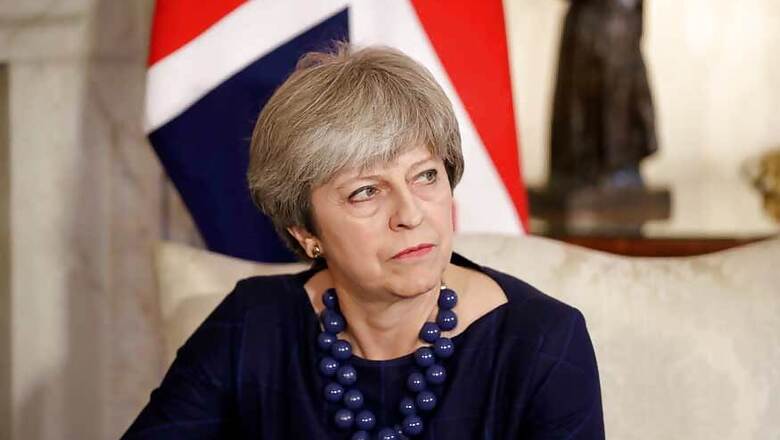
views
London: British Prime Minister Theresa May was on Wednesday facing a rebellion from her own MPs over whether parliament will have a "meaningful vote" on the final Brexit deal in what would be a damaging defeat.
A vote is expected later on Wednesday on an amendment to a landmark bill ending Britain's membership of the European Union and incorporating thousands of pieces of EU legislation into the British statute books.
Dominic Grieve, an MP in May's Conservative Party, proposed the amendment requiring any Brexit deal to be made law by a binding parliamentary vote.
Ten Tory MPs have signed Grieve's amendment.
If the government loses, that would deal a heavy blow to May less than a week after she struck a deal in Brussels to move onto the next stage of negotiations. "The government needs to listen to what's being said to them," Grieve told Sky News on Wednesday.
"Unfortunately, my impression of the last few days, when I've been talking to the government, is that it seems to be a bit of a dialogue of the deaf. They've turned this into a battle of wills."
Keir Starmer, chief Brexit spokesman for the main opposition Labour party, has tweeted that his MPs will back the amendment if pushed to a vote.
Tory MP Iain Duncan Smith, a hardline Brexiteer, earlier accused Grieve of "looking for ways to derail the bill", saying the amendment would "tie the government's hands" in negotiations with the EU.
The row revolves around Clause 9 of the bill, which hands the government "Henry VIII powers" to implement the Brexit deal without parliamentary approval.
Brexit secretary David Davis has promised to give MPs a final vote, and issued a statement today in a bid to head off the rebellion.
"The government has committed to hold a vote on the final deal in parliament as soon as possible after the negotiations have concluded," he said.
"This vote will take the form of a resolution in both Houses of Parliament and will cover both the Withdrawal Agreement and the terms for our future relationship." The statement did not specify whether the resolution would be legally binding.
"The government will not implement any parts of the Withdrawal Agreement - for example by using Clause 9 of the European Union (Withdrawal) bill - until after this vote has taken place," he promised.
The statement did little to appease the potential rebels as it did not spell out what would happen if MPs voted against the terms of the divorce deal.
Only if MPs approve the resolution will the government bring forward a bill to give the Withdrawal Agreement domestic legal effect.
"On first reading, the major problems with this: no guarantee of a vote before we leave the EU; and, no guarantee we get full details of terms and approve them before the PM finalises the Withdrawal Agreement," Labour MP Chuka Umunna, a prominent pro-EU campaigner, wrote on Twitter.




















Comments
0 comment